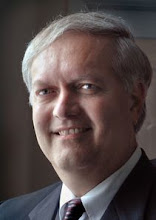
Okay, I realize that, just two posts ago, I complained about the unreliability of crime rate statistics. But I still have one more rant in mind concerning the topic of crime statistics. This rant concerns the myopic focus of the United States Department of Justice in emphasizing crime statistics too much. In other words, I am back on the soapbox today to complain about how, in my opinion, the DOJ inappropriately pushes each U.S. Attorney's Office around the country to focus more on the quantity of cases, rather than on the quality of cases, which each office prosecutes. In my opinion, DOJ does this in several ways.
For example, in recent years, DOJ, which oversees all 94 U.S. Attorney Offices around the country, has increased the statistical reporting requirements by each office. For instance, each U.S. Attorney's Office is periodically required to submit meticulous records to DOJ in Washington as to the number of hours spent by each Assistant U.S. Attorney, (and each U.S. Attorney's Office), along with the numbers and types of each of the criminal cases prosecuted. Then, DOJ crunches these numbers and they can (and do) "encourage" some of the offices with lower numbers to increase their numbers in certain crime categories, or else the U.S. Attorney's Office may lose funding for prosecutor positions! In other words, in my opinion, as a result, the focus of the federal government is now more on case numbers than on case quality or outcome.
In addition, DOJ periodically sends out evaluation teams to each U.S. Attorney's Office around the country to ensure that each office is complying with DOJ priorities. While, in some ways, such evaluations are a good management tool, the problem is that it promotes each U.S. Attorney's Office to "do what Washington expects," even if local crime problems present different challenges than Washington's "cookie cutter" approach. And the consequences of not following DOJ's directives can be serious: again, DOJ will not only castigate a non-compliant U.S. Attorney's Office in writing, but may also withhold some funding of U.S. Attorney Office positions.
Finally, one of DOJ's real problems, in my opinion, is the fact that, in evaluating its crime statistics, the DOJ also generally rates each criminal case, both large and small, just the same. For example, generally speaking, each small gun trafficking case is considered a "number," just the same, for many statistical purposes, as each large gun trafficking case. And the same is true for every fraud case, drug case, and for criminal cases in every other crime category. As a result, (although presumably each Office will try to do the right thing), there is no incentive from DOJ for the U.S. Attorneys' Offices to devote significant resources to large, complex cases, since DOJ will not give that office any more statistical credit for working on the big federal criminal cases. And if you work on a few large cases, then you may get penalized if you then have less time to boost your small case stats! So, what would you guess the U.S. Attorneys' Offices are going to focus on -- more small cases or a few large cases?
As a former federal prosecutor, (and current criminal defense attorney), I am concerned that, in the future, we will not see many U.S. Attorney's Offices working on very many long, complex federal criminal investigations. They simply can't afford it because DOJ's approach simply doesn't encourage it. Instead, the trend is toward U.S. Attorney's Offices focusing more on small drug cases and other quick, "slam dunk" types of cases, so that they can generate large case numbers to please Washington, and keep their resources!
So, that is why I am on the soapbox today! In my opinion, DOJ's "numbers" policy encourages the prosecution of the "little fishes" and may let the "big fishes" get away! So, after 20 years of working for DOJ, now you can see why I am sick of crime statistics! What do you think?
 Have you ever heard of Charles Ponzi? No, you youngsters, I am not referring to that cool character, Fonzi, from the 1950's-based t.v. series, "Happy Days!"
Have you ever heard of Charles Ponzi? No, you youngsters, I am not referring to that cool character, Fonzi, from the 1950's-based t.v. series, "Happy Days!"













